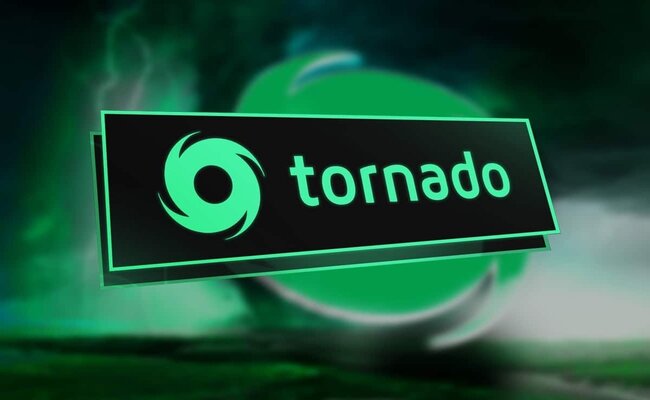Highlights:
- DOJ drops part of the indictment but continues pursuing money laundering charges and sanctions violations.
- The trial of Roman Storm is scheduled for July 14, 2025, following recent policy shifts by the DOJ.
- The U.S. Treasury sanctioned Tornado Cash in 2022, saying it had been used to help launder about $7 billion worth of stolen money.
Roman Storm, Tornado Cash co-founder, will be going on trial in July in New York. The U.S. Department of Justice stated they would still carry on with the case in a court document dated May 15. The filing was sent to Judge Katherine Polk Failla, a court judge in the Southern District of New York.
The DOJ will continue to focus on major accusations like money laundering and illegally breaking U.S. sanctions. However, prosecutors have taken out some parts of the original indictment. This involved accusations that Storm was running Tornado Cash without getting a money transmitter license. Storm’s trial is set to start on July 14.
The U.S. Department of Justice announced it will proceed with charges against Tornado Cash co-founder Roman Storm, accusing him of conspiring to commit money laundering, evade sanctions, and transmit criminal proceeds, while dropping part of the unlicensed money transfer charges.…
— Wu Blockchain (@WuBlockchain) May 15, 2025
The case started after the authorities began investigating the company in 2019. Authorities say that Storm and his co-founder, Roman Semenov, were involved in laundering more than $7 billion. The sum includes digital assets that are believed to be related to the Lazarus Group, a North Korean hacking group.
DOJ Memo Influences Decision, but Charges Remain
The May court filing refers to a new policy at the Justice Department that was described in a memo from April 2025 by Todd Blanche. The memo said prosecutors should only go after digital asset crimes if there was an immediate harm or a clear break in the law.
Despite this, the DOJ said that continuing the Storm case is in line with the legal guidance. Prosecutors said that the accused is facing charges because he took action on purpose, which is connected to other criminal activity. They explained that they dropped part of the charge after they looked over it with the local office and the Department of Justice.
The withdrawn charge was part of the larger claim that the person was running an unlicensed money business. Specifically, it was due to not registering the service with the U.S. authorities. Critics say that this rule goes against the 2019 guidance from FinCEN about how to treat non-custodial services.
Legal Pushback from Crypto Advocates
Legal and policy experts from the crypto industry have spoken against the viewpoint the DOJ took. The DeFi Education Fund and other privacy supporters cited the DOJ’s memo as a reason to drop the whole case. They said that neutral, non-custodial tools such as Tornado Cash should not be considered illegal.
Today, the DOJ filed notice it is dropping the Section 1960(b)(1)(B) charge against @rstormsf in U.S. v. Roman Storm, but will continue to trial on other charges. While this was consistent with an April 2025 DOJ Memo, calling for the end to “regulation by prosecution” and for the… pic.twitter.com/STDP2xXzP2
— DeFi Education Fund (@fund_defi) May 15, 2025
Peter Van Valkenburgh of Coin Center also disagreed with the current accusations. He noted that, according to U.S. law, if a criminal statute can be interpreted in unclear ways, the court will usually side with the defendant. Others, including Jake Chervinsky of Variant Fund, said this case should have been thrown out completely.
Storm previously tried to get the case dismissed. He said that writing open-source code was a kind of free speech. However, the court ruled that because the case was about how the app was used, they decided not to consider this First Amendment argument.
Tornado Cash Sanctions and Wider Legal Fallout
Tornado Cash first ran into trouble with regulators in 2022. At the time, the U.S. Treasury’s Office of Foreign Assets Control placed sanctions, saying it posed a threat to the country’s national security. These restrictions were taken away in March 2025, as a court found that they had gone beyond what was allowed by the law.
JUST IN: 🇺🇸 Tornado Cash addresses removed from The Office of Foreign Assets Control (OFAC) sanctions list. pic.twitter.com/kUvRPqCrCc
— Whale Insider (@WhaleInsider) March 21, 2025
The trial will focus on discussing just those three charges. These include charges such as conspiring to launder money and planning to break the International Emergency Economic Powers Act. Separately, he is still being accused of knowingly handling money that came from illegal sources.
Each of the conspiracy counts could get them a sentence of up to 20 years in jail, and the reduced charge would have added another five years. Storm has pleaded not guilty. His co-founder, Roman Semenov, is still missing and is believed to be in Russia.
Best Crypto Exchange
- Over 90 top cryptos to trade
- Regulated by top-tier entities
- User-friendly trading app
- 30+ million users
eToro is a multi-asset investment platform. The value of your investments may go up or down. Your capital is at risk. Don’t invest unless you’re prepared to lose all the money you invest. This is a high-risk investment, and you should not expect to be protected if something goes wrong.






